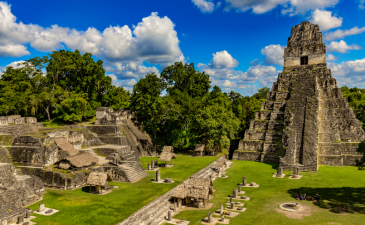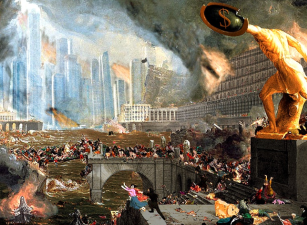Civilization is a hallmark of human development, endowing humanity with strength and wisdom and driving its progress.
However, every civilization has its ups and downs.
Why do such collapses occur?
- The Impact of the Natural Environment
The natural environment is a key factor influencing the rise and fall of civilizations. Frequent natural disasters such as floods and plagues can directly damage a civilization's infrastructure, reduce productivity, and plunge it into difficulty. Furthermore, as the environment changes, the number and variety of species also change. Environmental changes not only affect biological survival but also social change.
- Changes in Social Structure
Social structure is key to the development of civilizations, and changes in social structure can lead to the collapse of civilizations. Some civilizations flourished under strict hierarchies and regulatory governments, but over time, the drawbacks of these social structures gradually became apparent. Changes in a civilization's social structure often lead to social decline as populations migrate.
- The Problem of Economic Development
Economic development is a key driver of a civilization's long-term prosperity. In the early stages of development, the stronger the economy, the more likely a civilization is to prosper. However, as productivity continues to rise and capital competition intensifies, economic development can lead to increased social drawbacks. For example, problems such as excessively rapid population growth and high prices can lead to a reversal of economic development.
- Conflict and War
Conflict and war are the greatest challenges to the development of civilizations and have destroyed countless civilizations throughout history. Conflict and war within civilizations not only undermine productivity and infrastructure, but also lead to social instability, waste of resources, and population loss, ultimately leading to the collapse of civilization.
- Conflict of Cultures and Values
Conflict of cultures and values can lead to the collapse of civilizations. Significant differences in culture and values exist between civilizations. When these differences become irreconcilable, conflict erupts. These conflicts can undermine the harmony of civilizations, making issues like faith irreconcilable, and ultimately leading to the collapse of civilizations.
So how do civilizations arise?
- The Origins of Ancient Civilizations
In the early days of human history, different types of ancient civilizations emerged on every continent. These civilizations originated in different regions, some in river floodplains, others in arid deserts. Each possessed unique characteristics and advantages, both in terms of geographical location and natural environment. These factors combined to form distinct civilizational systems.
- The Rise and Fall of Civilizations
The rise and fall of ancient civilizations was not a sudden event, but rather a gradual accumulation over a long period of time. Throughout this process, humanity continuously explored and innovated, accumulating a wealth of knowledge and skills. For example, the ancient Egyptians built world-famous pyramids and mysterious temples; the ancient Greeks created unique philosophy and art; and the ancient Romans established a vast empire, promoting commercial and cultural exchange.






